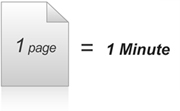Type of Screen script
It is an important element of an indie movie. There are THREE types of screen script as follows: Linear, Non-linear and Documentary.
Linear
- Linear (Narrative) stories follow a timeline taking the story from beginning and moving chronologically to the end.
- Traditional narrative focuses on the chronological order of history; it is event driven and tends to center upon individuals, action, and intention.
For example: “The Passion of the Christ”
- Modern narrative typically focuses on structures and general trends. A modern narrative would break from rigid chronology if the historian felt it explained the concept better. For example: “300”
Non-linear
- Non-linear is the opposite of chronological. This means you may chop up time and use time sequencing to throw the viewer off balance.
For example: “Momento” or “Pulp Fiction”.
Documentary
- This is a real-time reality presentation letting the facts present themselves with little or no direction or editing.
For Example: “An Inconvenient Truth”.
Depending on the story you are telling, you will choose the best format to use:
- Traditional scripting – Narrative and linear format
- Modern scripting – Non-linear format
- Interview scripting – Documentary format
What are the essentials in your script?
There are 4 steps in the composition of a Screen script: Introduction, Elucidation of the theme, Transition to another viewpoint and Summing up.
- Introduction is the cause of the beginning of the script
- Elucidation of the theme is the process of events
- Transition to another viewpoint is the result of a turning point
- Summing up is the talk of the script is at the end.
How should you start the script?
| You need to set your. |
| Goal: |
Commercial or non-commercial |
| Genre: |
FX, Action, Love story, cartoon … or Cross over |
| Your audience: |
Male or female, Younger or Adult… or yourself. |
| Audience received: |
Exciting, relax, romantic, surprise, explore, introspection ….. |
| Scripting Format: |
Linear, non-linear or Documentary |
| Research & analysis: |
Research & analysis about your topics of indie film |
| Practice : |
Try to write a your story, re-write and re-write, make it well |
Keep in mind: less is more; more is less, If you have too many ideas in a script, and audience can’t receive your message clearly.
How long for your script?
 |
There are 3 types in general
- Teleplay (situation comedy): 30 pages
- Low-Budget script (Indie Film): 90-100 pages
- Studio Feature screenplay: 120-140 pages
|
Tips: Write 1 page = 1mins |
Other methods…
Keep Daydreaming, watch different type movie and write down any the best!
Writing rapture, Sudden inspiration...

Now, you can try to practice to writing screen scripting. |
 Download Script Form Download Script Form |
| or you can download free writing screen scripting application - Celtx |
 Celtx Celtx |
| |
|
|
